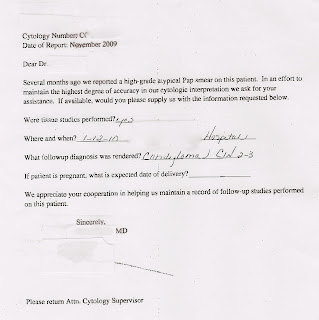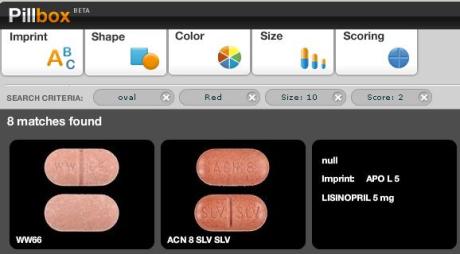
March 30th, 2010 by RamonaBatesMD in Better Health Network, Health Tips, News, Research
Tags: ABCD Rule, Archives of Dermatology, basal cell carcinoma, BCC, General Medicine, M&M, Malignant Melanoma, melanoma, Non-Melanoma, Primary Care, SCC, Skin Cancer, Skin Cancer Prevention, squamous cell carcinoma
No Comments »

The entire March issue of Archives of Dermatology appears to be dedicated to skin cancer — melanoma and non-melanoma.
Basal cell carcinoma (BCC) represents 65% to 75% of all skin cancers. Most occur on sun-exposed parts of the face, ears, scalp, shoulders, and back. Intense short-term UVB exposure is important in the formation of BCC. Clinical features include pearly translucent flesh-colored papules or nodules with superficial telangiectasias (broken blood vessels). More active lesions may have rolled edges or ulcerated centers.
Squamous cell carcinoma (SCC) represent 30% to 65% of all cutaneous malignancies. SCCs are most attributable to UVB exposure, long-term or accumulative exposure over years. Clinical features include crusted papules and plaques that may become indurated, nodular, or ulcerated. SCC may arise in chronic wounds, scars, and leg ulcers. Recurrent SCC development within 3 years is 18%, a 10-fold higher incidence compared with initial SCC diagnosis in the general population.
Malignant melanoma (MM) represents the most serious of all cutaneous malignancies. It is estimated that approximately 65% to 90% are caused by UV exposure, predominantly UVA. Roughly 10% of all melanoma cases are strictly hereditary. Read more »
*This blog post was originally published at Suture for a Living*
March 28th, 2010 by Happy Hospitalist in Better Health Network, Health Tips, Opinion, True Stories
Tags: General Medicine, HIPAA, Medical Records, Patient Confidentiality, Patient Privacy, Primary Care
No Comments »

 Have you ever asked yourself the question: “Who has access to my medical records?” It’s supposed to be secure. Your medical records are supposed to be protected. For many people, they don’t want anyone knowing they have genital warts or that they were treated for depression five years ago.
Have you ever asked yourself the question: “Who has access to my medical records?” It’s supposed to be secure. Your medical records are supposed to be protected. For many people, they don’t want anyone knowing they have genital warts or that they were treated for depression five years ago.
Many people believe that those with access to their medical records protect their privacy according to HIPAA rules. Well folks, I’m sorry to be the one to tell you, but your medical records aren’t as secure as you may think they are. In fact, if you live in Happy’s town, you might even be lucky enough to have ME get access to your medical records without even trying.
You see, my home fax number is very similar to a laboratory fax number in my city. And because of that, every week I’m getting faxes from hospitals and doctors’ office with lab results. I used to call them back to let them know, but so often I’d get put on hold or have to navigate through twenty phone options that I just said “forget it.”
Now when I get these faxes I chuck them. If I feel like taking the time to shred them I may. Otherwise, they go straight into the garbage. Except for the fax I got last week regarding Mary Smith and her condyloma results. Read more »
*This blog post was originally published at The Happy Hospitalist*
March 28th, 2010 by Berci in Better Health Network, Health Tips, News, Research
Tags: Capsules, FDA, FDA-Approved Drugs, Food and Drug Administration, National Library of Medicine, NLM, Pharmacology, Pill Indentification System, PillBox, Solid Dosage Pharmaceuticals, Tablets
1 Comment »

 Pillbox is the result of a partnership between the National Library of Medicine and the Food and Drug Administration. It helps you identify unknown pills and tablets by parameters such as form, color, size or imprint. The constantly updated database now has more than 7,000 entries with images.
Pillbox is the result of a partnership between the National Library of Medicine and the Food and Drug Administration. It helps you identify unknown pills and tablets by parameters such as form, color, size or imprint. The constantly updated database now has more than 7,000 entries with images.
Pillbox was developed to aid in the identification of unknown solid dosage pharmaceuticals. The system combines high-resolution images of tablets and capsules with FDA-approved appearance information (imprint, shape, color, etc.) to enable users to visually search for and identify an unknown solid dosage pharmaceutical. Read more »
*This blog post was originally published at ScienceRoll*
March 26th, 2010 by RamonaBatesMD in Better Health Network, Health Tips, Opinion
Tags: Barbie Syndrome, BDD, Body Dysmorphic Disorder, Cosmetic Enhancement, Dr. Glenn Braunstein, Obsession With Appearance, Plastic Surgery
No Comments »

Interesting article in the Huffington Post last week by Dr. Glenn D. Braunstein: Oh, You Beautiful Doll: Plastic Surgery Risks and Rewards. The article discusses the “Barbie Syndrome” or more accurately “Body Dysmorphic Disorder.” I love this line:
And, finally, try to have realistic expectations — it is unlikely that cosmetic enhancement is going to drastically change your life — after all, you are human, and not a plastic doll.
The article reminded me of my post on Suitability. Not all patients should have surgery. Their reasons for desiring surgery, goals, and expectations should be discussed during the consultation. Risks and benefits must be weighed.
Body Dysmorphic Disorder
- In its simplest definition, it is an obsessive preoccupation with a slight, imperceptible, or actually nonexistent anatomic irregularity to the degree that it interferes with normal adjustment within society.
- This disorder may be present in varying degrees. It is the most common aberrant personality characteristic seen by the plastic surgeon.
- When postoperative dissatisfaction occurs (and in most cases, it will), it almost always is based on what the patient understood rather than what was actually said.

*This blog post was originally published at Suture for a Living*
March 24th, 2010 by DrRob in Better Health Network, Health Tips, Opinion, Research
Tags: CAM, Complimentary and Alternative Medicine, Evidence Based Medicine, General Medicine, Research, Science Based Medicine, Traditional Medicine
1 Comment »

Here’s some advice I have given teenage boys who are going toe-to-toe with their mothers about a health issue:
Don’t go toe-to-toe with your mother; it’s a no-win situation. Either you are right, and you are looked at as a “smarty-pants” or you are wrong, and have given her a huge “I told you so.” If, on the other hand, you keep quiet and listen to what she’s saying, it’s a win-win: either she’s right and you learn something, or she’s wrong, and you have been vindicated.
Fathers often pipe in that this applies to wives as well. Mom’s don’t seem to disagree (for some mysterious reason).
While this may be sound relational advice, it also needs to be heeded by the medical community in its relationship to “complimentary and alternative medicine” or CAM. I am not saying we shouldn’t be angry and frustrated with the CAM purveyors who are harming and even killing people (such as the anti-vaccine movement). I am not saying that we should embrace CAM and put it at anywhere near equal footing with our profession. What I am saying is that in our enthusiasm to win the argument, we can undermine our own credibility. Read more »
*This blog post was originally published at Musings of a Distractible Mind*





 Have you ever asked yourself the question: “Who has access to my medical records?” It’s supposed to be secure. Your medical records are supposed to be protected. For many people, they don’t want anyone knowing they have genital warts or that they were treated for depression five years ago.
Have you ever asked yourself the question: “Who has access to my medical records?” It’s supposed to be secure. Your medical records are supposed to be protected. For many people, they don’t want anyone knowing they have genital warts or that they were treated for depression five years ago.










